Do other sports hang out their dirty washing so obviously at times? Probably but pro cycling has its moments, see how the ex-Lampre team doesn’t know if it’s going to ride or not just weeks out from the start of the new season or the farcical decision by the major races to shrink the number of participating riders without agreeing with anyone else resulting in a rapid climbdown.
Sometimes pro cycling seems trapped in a loop with regular failings and flops that repeat themselves. It’s tempting to launch into a rant but the irony is that a lot of these flaws can be fixed.

The hot topic at the moment is the team that formerly known as Lampre and now formerly known as TJ Sport. The Italian team was supposed to be taken over by TJ Sport, a Chinese firm, but this looks to have collapsed – they cancelled their pre-season training camp – and is now subject to a last minute rescue bid reportedly involving sponsorship from Adu Dhabi. This is bad but it doesn’t have to be this way. In fact it’s only the latest midwinter licence drama where teams and riders don’t know if they’ve got a job just weeks out from the new season.
- The solution: screen new sponsors earlier. Incoming teams with no track record could have their licence application reviewed much earlier in the year. Do this in the summer and if the UCI’s auditors give assurance it means the team has a green light to recruit and everyone from riders to support staff can join knowing the money is there
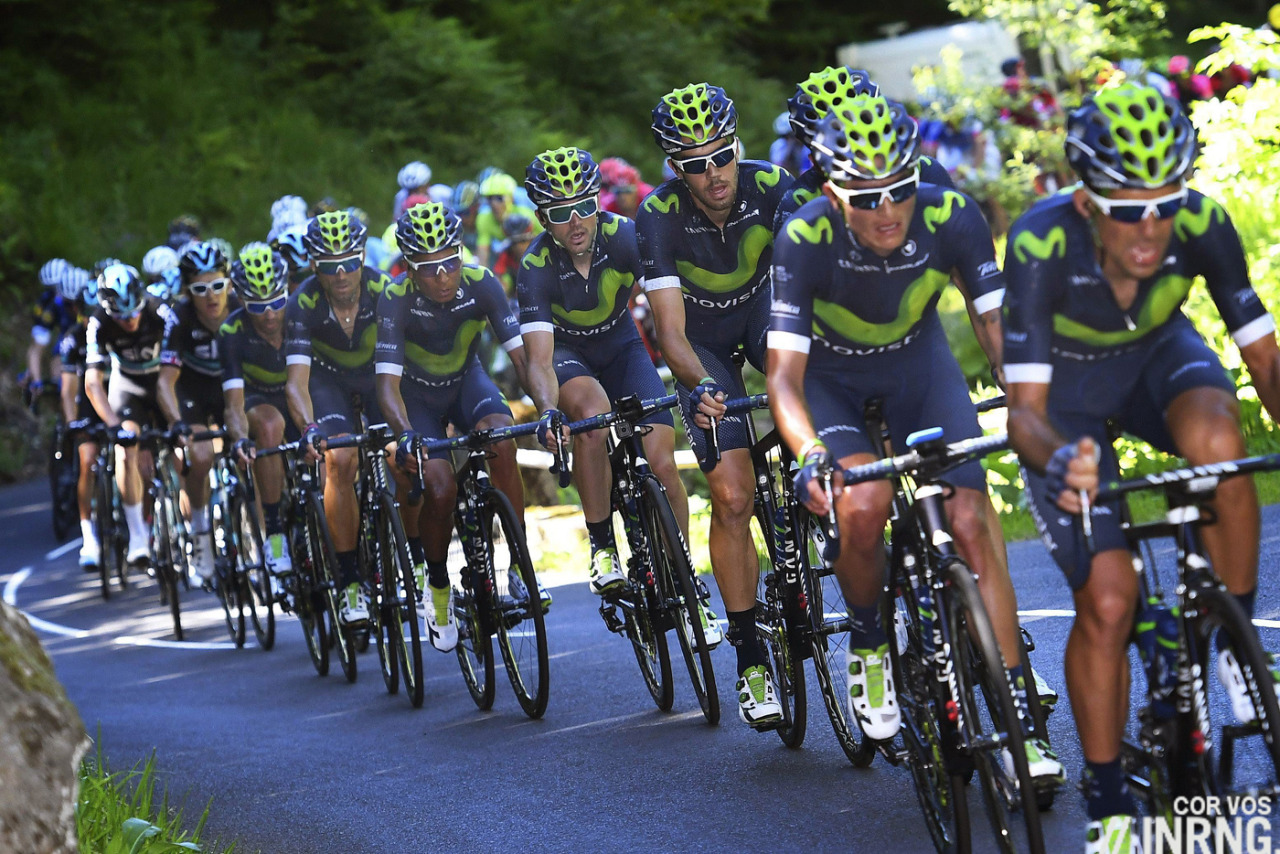
Last month race organisers ASO, RCS and Flanders Classic emerged from the annual meeting of the AIOCC (the international association of cycling race organisers) to issue a press release saying they’d shrink the team size for their races. A year prior they voted in support of this too but of course it cannot be implemented without agreement from the teams, riders and the UCI. Only this year the races made a unilateral announcement which suggested they wanted to bypass the UCI altogether. The UCI replied that this would be outside of the rules and so the races duly fell back although we can imagine this idea is now firmly on the agenda for meetings in March and June. But the event owners act like this because the UCI flouts its own rules, the governing body had previously stated only established races could be upgraded to the World Tour calendar only for the Tour of Guangxi to get a World Tour licence despite never having been staged before.
- The solution: it’s tempting to suggest some study the rulebook but the substantial underlying issue here is atomisation of the sport and the constant mutual suspicion among the parties here. Here there’s no obvious way out, even a UN diplomat might find this bickering hard to resolve. It could be less damaging if these struggles are conducted in private
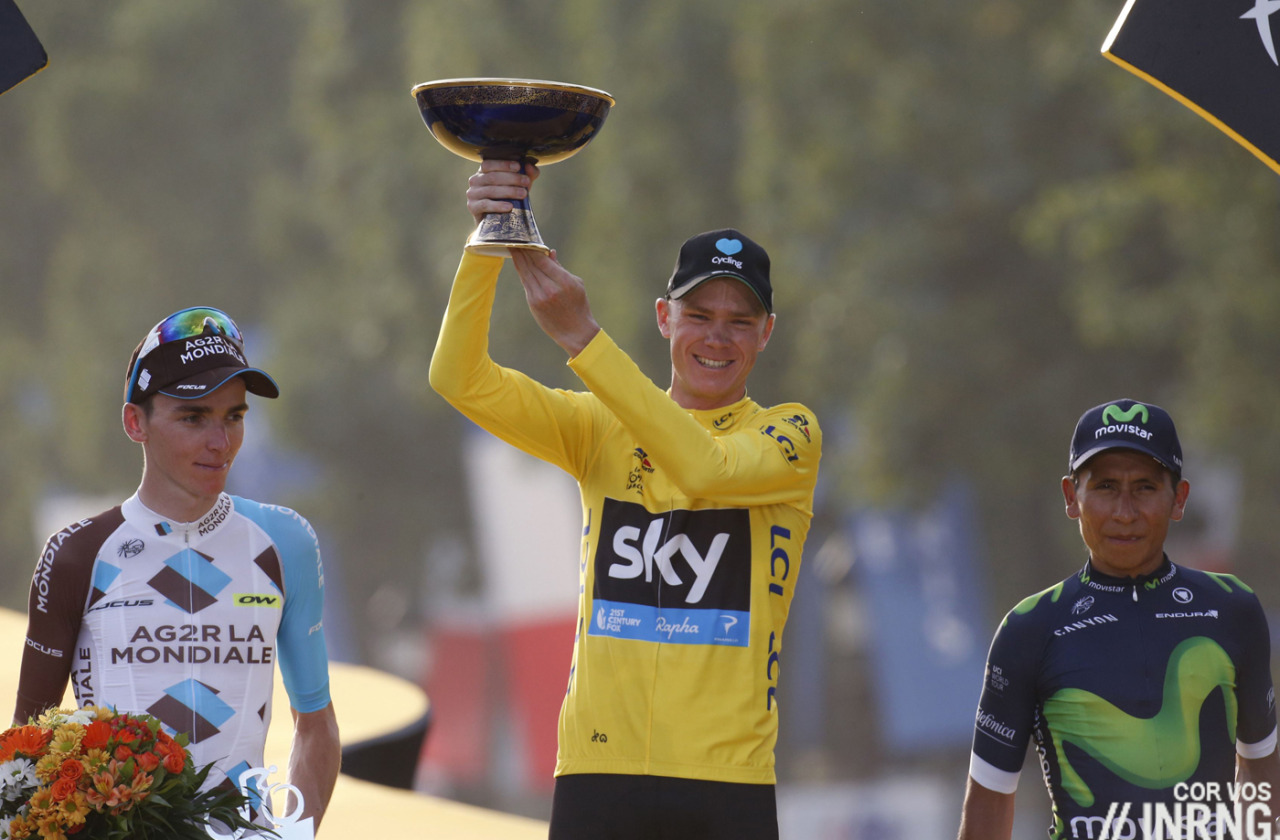
For a lot of pros getting prize money is a headache. There’s no envelope waiting on the podium. Instead funds paid from a race are given to the national federation who then pay it on and at the end a creaking custody chain sit the riders. The margin between the headline or gross prize and the actual net prize banked is substantial. But so is the timing, it can take an age for the pros to get the money as a recent article on Dutch website NOS.nl illustrated. This matters because this isn’t about the millionaires in the sport collecting bonus funds, it’s a substantial part of the income for the workers be they riders, mechanics, soigneurs and so on as the tradition is that prize money is shared.
- The solution: ironically there’s a compulsory levy on all prize money of 2% which goes to the CPA rider union. Given this collecting the money ought to be the union’s basic task, its sine qua non. Riders and their union should insist on a system to pay out prizes within, say, 30 days

Yes you read that right: there is a rider union. However the CPA seems behind the issues and on a range of issues it seems like riders are the last to know and generally expected to follow new initiatives like sheep. For example when the races announced their plan to shrink the peloton there was no public response from the CPA, let alone prior consultation. The same on important safety reviews. On the structural sides as the Velon teams press races to pay them money where is the union to bargain for this money to go to riders and not the team owners?
- The solution: this is coming as various national branches of the union are starting up and bringing fresh energy. The UCI’s Athletes Committee can’t handle these issues and should be officially replaced by the CPA. If necessary the CPA could be better funded but perhaps first the union could publish its accounts?
The new look of AstanaProTeam for 2017 with @GiordanaCycling What is your opinion? We like it so much! pic.twitter.com/mmMrI8dm11
— Astana Pro Team (@AstanaTeam) November 23, 2016
It’s a small one but Astana launched their team kit and sent out the image of the new look on social media. Only just look at the picture: the helmet has a Kristoff-tilt, a shadow falls across the new jersey, the image is blurred so you can’t read the sponsors and there are all sorts of distractions like the cable on the floor, the cameras poking into the shot and the bank of sockets on the wall behind. And that mannequin of course. As said this isn’t a burning issue but it is a pro team’s first chance to show off its new kit. The jersey is the most valuable piece of real estate in the sport and ought to be cherished more; other images of their new bike showed the elusive wireless FSA groupset but blurry images meant almost nobody noticed.
- The solution: a clear, composed shot taken with a quality camera on a tripod? Ok but this is really about a more fundamental point. Some big pro teams can be amateur with their image and communications. Lampre haven’t worked out how to post a message on Twitter and Facebook without posting the same thing twice which requires them to delete the duplicate which means you can be reading something only for it to vanish. Teams have good websites but some still struggle with English content, either there’s none or it’s Translation-bot poor and that makes it harder to build a foreign fan base. Even if the main team sponsors still have a strong domestic focus – eg you can’t buy FDJ scratchcards outside of France – their equipment suppliers surely crave international attention
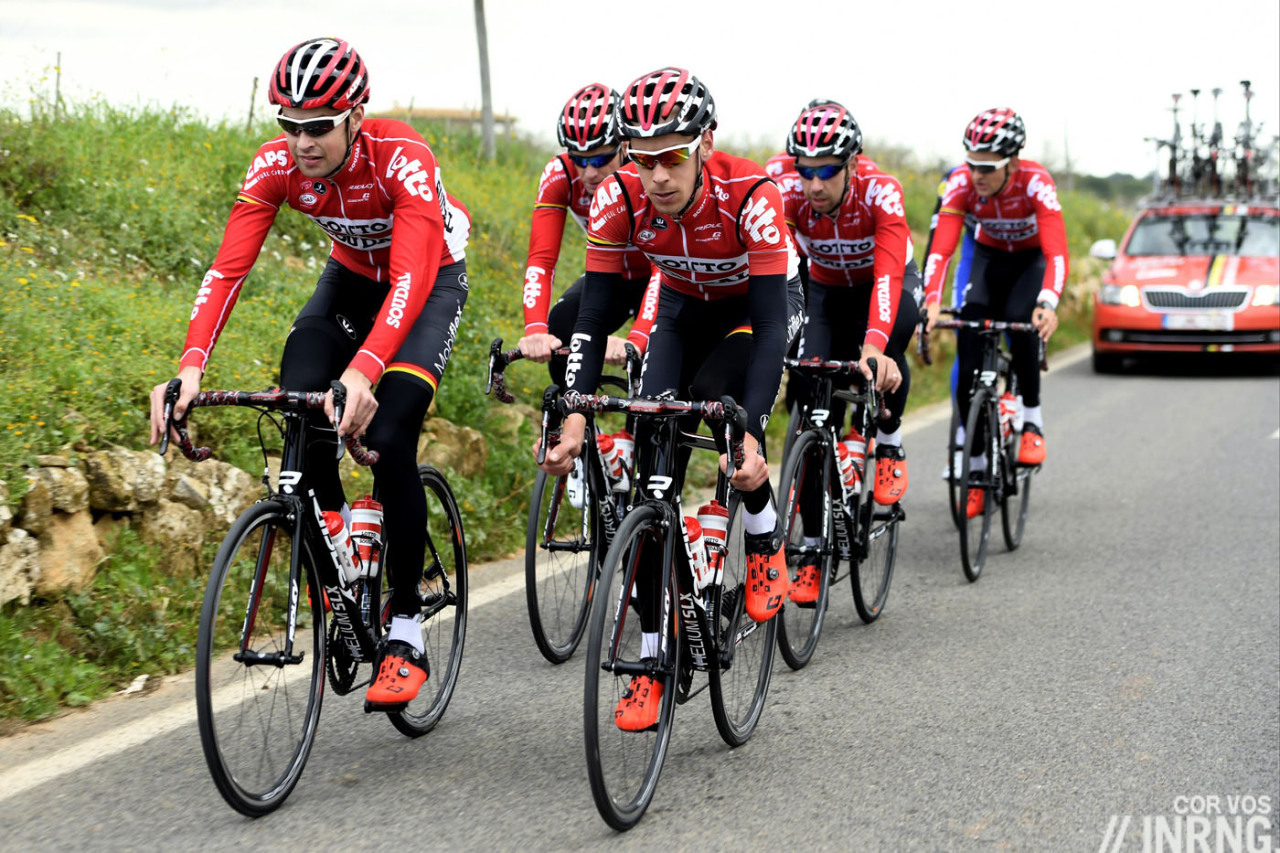
Another awkward issue right now is the sight of riders attending training camps in their “old” kit. Look at Lotto-Soudal in the picture above. Look again and you’ll Nikolas Maes has to wear his blue Etixx-Quickstep so he’s tucked at the back for the photos. Why? Because pro contracts run from 1 January to 31 December and Maes is still a Quickstepper despite showing up for work with the rival Belgian squad. Now this year-long contract is good in theory as it stipulates a full year’s salary but the timing is all wrong. See how Peter Sagan couldn’t pose in Bora-Hansgrohe kit at this week’s team presentation because he’s technically still a Tinkoff rider despite training with and attending Bora-Hansgrohe events. Nobody wins like this, Tinkoff aren’t getting any benefit. Imagine a football team unveiling their new signing while he’s still dressed in the shirt of his old team.
- The solution: run pro contracts from 1 November to 31 October. Easy? Not quite because an adjustment would mean a shorter contract during the switch-over but it could be phased in, move back a month for one year and a further month the next. Or compensate any losers. It’s a classic case where people ought to get together and thrash out a solution
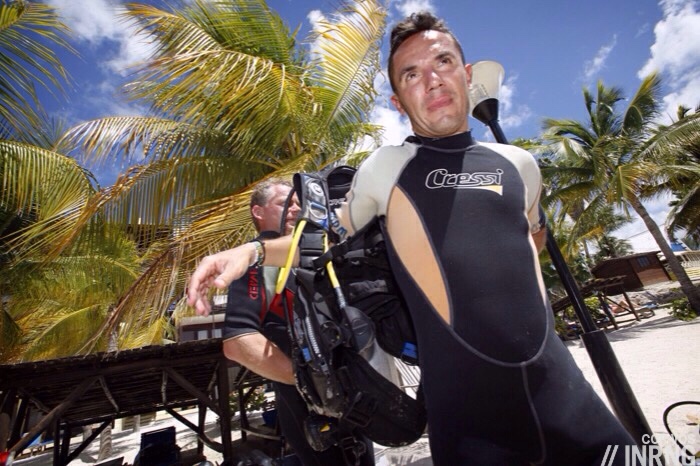
One rider who doesn’t have to worry about their contractual status any more is Joaquim Rodriguez who has finally decided to retire for good. Everyone knew Bahrain-Merida hired him for his UCI ranking points in their bid for a World Tour licence and once this was in the bag he retired again. The team were gaming the UCI rules before they’d even become official which doesn’t help their image but the real problem is the UCI rules allow this kind of horse trading, they incentivise teams to hire redundant riders who will never turn a pedal.
- The solution: if a rider isn’t going to ride for the team then they should not count. If a squad “does a Bahrain” they ought to be docked the points they claimed for their roster in the following year’s review. This rule would need some finesse to ensure a team isn’t penalised if a rider has to retire on grounds of, say, injury
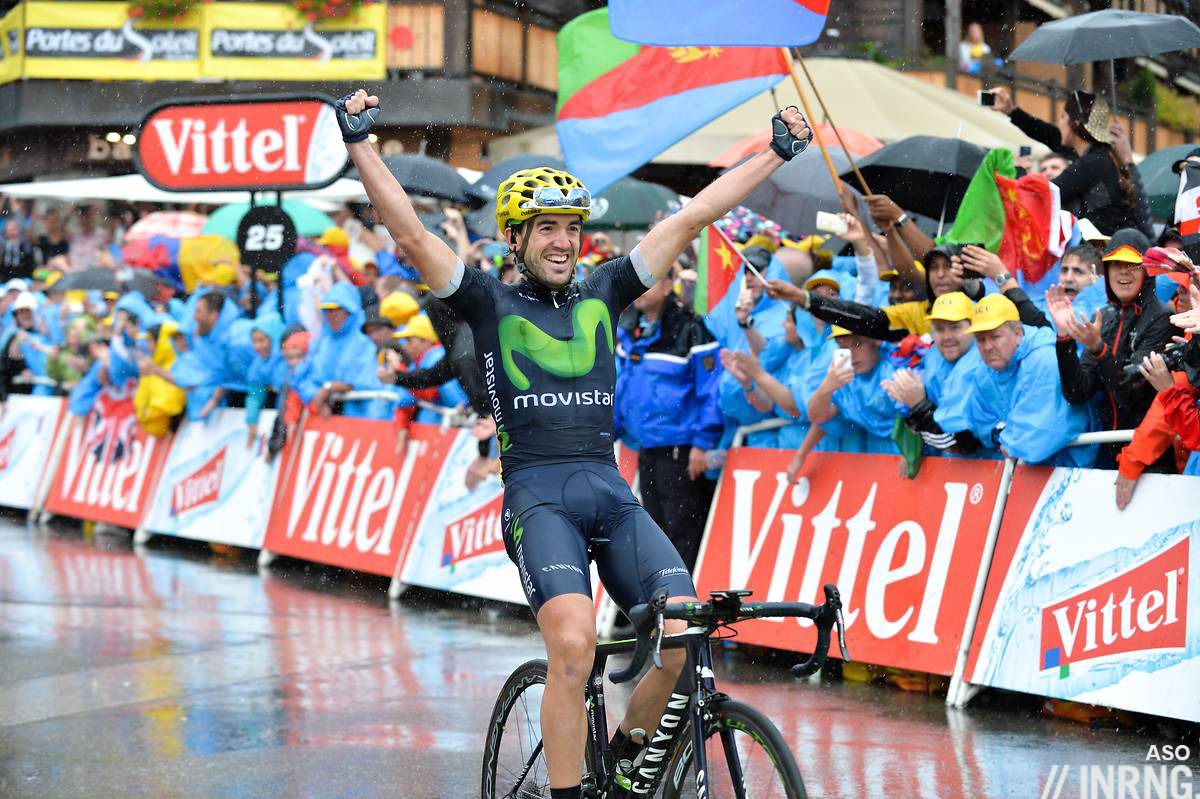
All these machinations exist because the World Tour licence system can go from equilibrium to chaos in a flash. This blog’s labelled it the “team tipping point theory” where the moment you have N teams competing for N places in the World Tour all is well, teams are content and the rider transfer market is orderly. But the moment we reach N+1 everything changes, teams are worried about their World Tour status and by extension their existence. To compound this the jobs market goes bananas where riders with points and contractual availability suddenly able to name their price. In fact the market reached boiling point with Bahrein-Merida buying out Ion Izagirre (pictured) from his contract with Movistar. Good for them but it’s not good for everyone else, those riders with more points but tied to a team can’t cash in. Meanwhile teams have to pay over the odds and this blows their budget out of the water.
- The solution: a harder one but regulating World Tour licences in a new way is a start. If a new team comes along we could stipulate they start in the Pro Conti ranks but this might deter sugardaddies and corporates alike who won’t tolerate seeing their name in cycling’s second division. Another is clearer promotion and relegation rules rather a system that seems to change every season… as in winter, spring and summer rather than a sporting season
Conclusion
Pro cycling can sometimes look a bit amateur and often has more hiccups than a feeding baby. But rather than embark on a rant to rage about this it seems more constructive to venture ideas. From the structural to the cosmetic there are problems but also solutions. Sure there’s a lot of “easier said than done” and some issues require pages of analysis rather than a bullet point but a few fixes could make the wheels turn smoother in the coming years.
Finally some of these problems are small and administrative when you might suggest sweeping reforms instead. But if the sport struggles to evolve these basics what chance it could cope with radical revolution?

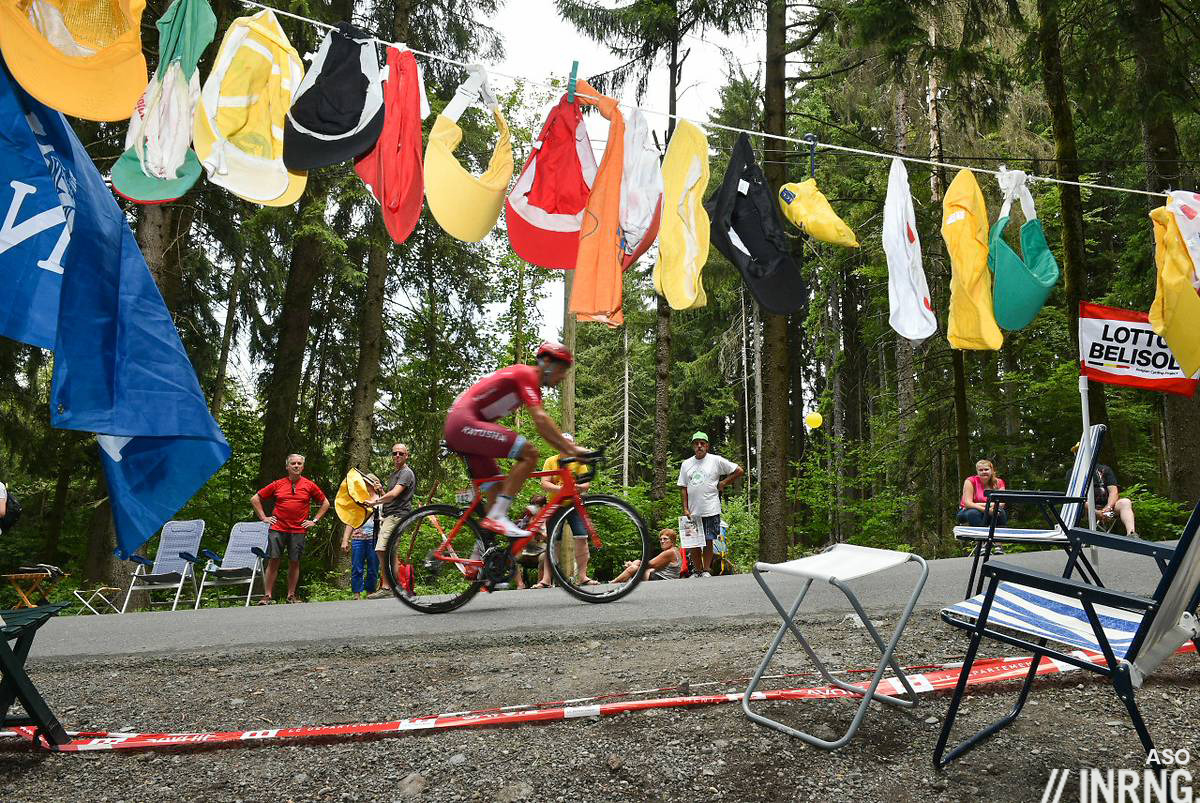
Surely the ideal number of teams is always N+1?
N+1 works if there’s a steady tension, if N+1 is the norm. It’s when we go from N or even N-1 to N+ 1 in July that suddenly the jobs market and the value of points as a salary currency swings. We saw this when the Alonso team appeared, it never happened but the mere prospect of it was enough to send salaries soaring for some.
I think it’s a reference to the optimal number of bikes a cyclist should own, per the velominati.
Don’t worry about ‘N’, it is a variable. The UCIs rule is ‘If you have the finance, welcome’.
Another thought provoking article. Unfortunately I am not waiting for the common sense solutions suggested to be implemented any time soon.
Inrng – well said. I think you’ve articulated the main issues pretty well. I agree with the starting points for most of your solutions as well.
Unfortunately, the heads of state in cycling will not get this fixed. They refuse to have mature conversations about it, most negotiations is through the media and consequently, things keep changing and no one can truly analyse what the best approach should be.
Hopefully there are conversations in private as well. There is a lot more behind the scenes that gets done but you do wonder when various team owners are reduced to howling their complaints on social media.
Interesting article many thanx! – good points and solution proposals.
Would cycling benefit from a dynamic ranking, like what Tennis has.
So top 16/18 teams x(6?) months prior to the tour gets an invitation then wildcards and so forth.
I consider myself a cycling geek(maybe less so on this exact site) and I don’t really pay attention to the points system, because it does not seem very relevant.
Would it make sense that riders shared their points with the team that payed their salaries, say half of Nibalies points stay with Astana and half go to his new team? and a league system were established like what ASO is asking for?
I will hate myself for writing this, but uncle Oleg was right in the sense that the basic business model(pretty much pro cycling fundament) is flawed and before that is addressed stability will be harder, but the points mentioned above are really good starting points.
Thanx for all the good work Inrng!
I would only comment that where you have an inadequately-funded regulator in a commercial marketplace, it does not work!
There lies a lesson for life for those who believe in de-regulation and market rule – short-termism, self-interest and ultimately cheating.
So says Comrade Ecky 😉
Salud Comrade Ecky!
I fix bikes in a coop everyday so for the life lesson I am on your side.
Shall we set up a structure for a cycling-team that is sustainable run? long term?- if you agree how do we raise money that is not sponsor money?
The regulator ought to be central player, but maybe due to a historical lack of leadership(skills?) they have passed that spanner.
I like presi-cook but do see him more as a post-reform manager than the man to push reforms trough? – .
Cycling is an amazing sport, but also quite odd, imagine if peeps were fans of the premiership rather than Arsenal or the NFL rather than the Patriots.
RE the dodgy sponsors, this is also something that could be addressed through a proper promotion/relegation system: all prospective top tier teams need to show that they’re good for next year’s budget within a set period of the end of the season, or they get relegated to the next tier down. Something similar happens in a number of French Team sports.
Team reductions and Guangxi seem more tricky issues to fix, as they’re the rule-makers consciously breaking their own rules.
Another Organisational, political, business themed piece. Not much far removed from Club cycling and this to think is the top of the tree! At least the Astana kit doesn’t look so “washed out” but oh my goodness that photo could have been done better by a five year old.
It’s clear that most teams are so concerned with staying afloat in the short term, that investing time and resources towards long term structural changes is not a priority. The teams are like junkies, they are happy and content when they have a sponsor, or scrambling to find another, facing extinction if the quest fails. So why worry about all this other stuff. Though, I agree with the post. Until the teams can figure out a business model that provides long security, short term behavior will prevail.
I think that you could have pay to play . So if you decide you want to go straight to World Tour status , you should be willing at the least to bank salaries for the entire year up front. If you don’t want to front the cash then off to Pro Continental you must go .. do not collect $200 yadah yadah .
A lot of the problems in pro cycling come from the “this is the way we’ve always done things” attitude, which is great for things like still riding the cobbles and bergs in Flanders but not so much for running an international sport in the 21st Century.
All this seems so much like re-arranging the deck chairs on the Titanic. Until doping is taken seriously (which I think is ever-so-slowly happening) and the traditional cycling countries recover from their economic troubles, all this talk is kind of laughable.
Sadly, ASO (still) seem to be the only adults in the room here. But perhaps beyond this, do we all want to see pro cycling become just another (insert corrupt, it’s-all-about-the-money, no sport-all business, etc.) corporate entertainment tool? How many of us have interest in this sport instead of F1, MOTOGP, NFL, NBA, UEFA, Champions League, WTA, etc. BECAUSE of the quirks and less-than-perfect corporate identity of pro cycling?
Yes, I still fail to see why people adhere to the dogma that profit = good.
Good for the people who are making the money, but how is it good for the sport? No-one’s ever able to answer that.
I think it’s just the fact that is what is hammered into us in all aspects of our societies: money is success.
The people who are trying to make this money keep plugging away with the idea – which they invented – that cycling is on the verge of financial collapse and people buy it. Teams fold, new teams come along. New sponsor turns out to be nonsense, next sponsor is found. More stability would be good, but as you say, cycling has far bigger issues.
I don’t think that’s a solid bit of analysis, is the health of pro cycling tied to the economic performance of a few Western European countries? I’m not saying that cycling has to become like F1, the NFL etc, but most professional sports have a few things in common such as athletes getting paid, teams being a long term proposition regardless of sponsors coming and going and a annual league system that everyone agrees on and that makes sense. Getting the fundamentals right would do more for the business side of things than simply waiting for the French economy to take off and/or the ASO to take over everything. It’s not about profit, and I don’t think any sponsors or organisers get into cycling because they’re convinced it’s a money-making proposition, it’s about viability and sustainability.
Change the points system so that teams’ points are ‘what they earned last year’, not what new riders earned at other teams. Or just get rid of it altogether.
Was just checking to see if someone had said this and I see that you have. Seems pretty obvious to me. No ability to “buy” points and a place at the top table. It should be strictly on what your team did in the year. New teams could only come on board if another team drops out or we invent a proper relegation/promotion scenario (1 up/1 down?). All new teams should start off pro conti.
Inrng for UCI president!
He’s certainly knowledgeable enough and has a good understanding of the many problems.
However, he’d likely find quite quickly that stating that things ought to happen won’t make them so. As UCI president he’d still find that ASO does as ASO wants, for ASO’s benefit, for example.
Well put and that’s the issue I have with this post. I’m pretty sure many are aware of the sport’s shortcomings, but the competing interests and weak structure don’t make it easy to change.
But I think some of the issues above could be fixed. For example who is blocking the January to December contracts? I didn’t mention it above but the UCI’s 2017 season already started the day after their gala last October, so riders winning in Asia in November see their points/wins count for 2017 so in a way for the UCI the season already begins at the start of November.
Similarly the rush by the races to announce a reduction in the number of riders – unless it was just a stunt to dump it on the agenda – could have been better handled if the race owners had checked the rules rather than waiting for the UCI to throw egg back in their face.
I am not sure why points only follow the rider. Could Cavendish win with out his team? Would a quick fix to prevent another JRod incident not be to award the team licence the same amount of points as the rider.
November as a contract deadline doesn’t work though.
For example: Peter Schulting rode the 2016 season for Parkhotel Valeknberg. This included the Tour of Fouzhou which ran from 16-20th November and counted to the 2016 season. His 2017 team is Destil-Piels. So a November date would have to be 30th of the month, but even then some calendars start in November for the 2017 counting season.
There’s a really awkward overlap around November where both the 2016 and 2017 seasons run at the same time and this would need to be eliminated before any contract overlap was dealt with.
the most important easy change should be individual rider numbers clearly displayed on their kits…
I don’t care how many watts they are spitting out, I just want to know who the hell is who, without having Kirby guess it wrong 3 times…!
Put their name in. Heck, make the numbers valid season-wide. You could even sell Valverde’s jersey like a footballer’s.
That ‘globalisation’ certainly has provided the financial stability that all the Velon-ites told us it would.
These are all symptoms of the lack of professionalism this sport has. Ironically, one of the goals of the World Tour (and its prior names) was to increase this, but it has been mostly a failure.
The sport isn’t ready for this league like concept, and doesn’t have the stability or capital to make it happen. Raising the fiscal bar (the amount one needs to spend in order to be at the World Tour Level) has destabilized things.
You can’t erect a building top down; you need to start at the bottom, and it has to be on solid foundation. Our beloved sport is shaky from the amateur level all the way to the top.
If one created a broader second tier (increase the number of pro-conti teams) and reduced the top tier (WT Teams), you’d potentially have more teams competing to be selected for the top tier, and more opportunities for the second tier teams to compete in races they actually want to, rather than force them to spend money to build teams for races they really don’t care about. This also gives race directors more freedom to invite teams (from the 2nd tier) that they want to see at their races.
Reducing their budgetary requirements does not necessarily mean decreasing their revenue; it just eases the burden of scraping by to get to a particular level in order to make it into certain races, and might just leave them with discretionary funds. It all comes down to the value they can provide.
Sure it might mean less riders, and less team staff, but that isn’t necessarily a bad thing if it increases team stability and helps raise the bar long term.
Another pet peeve of mine is the ever changing team kits. If you want to build an identity and following, why change the key identifier every year, if your major sponsors haven’t changed? They don’t make enough off of kit sales to justify the practice. If sponsors do change, one could keep a general theme, and merely change colors and logos to suit the needs of their new sponsors.
Excellent points!
Interesting point about the kit changes- but even that isn’t fully taken advantage off. Surely it would make good financial sense to have all new kits released before Dec to allow fans to buy the replicas for Christmas- I know it would make life much easier for my wife knowing what to get me each year! (Before the anti- Pro Kit W…..rs get all agitated- I collect pro team jerseys-I don’t always wear them on the bike!)
While screening new teams/new sponsors earlier sounds like a common-sense solution to avoid scenarios like the current TJ Sport situation, the general instability of the sponsorship model makes it incredibly difficult for teams to get their funding squared away in a timely manner. If you made the deadline months earlier, I foresee many teams whose sponsorship deals are over would simply fold. The sport cannot afford to lose a few upper-level teams every year.
I agree with what you say so my suggestion is more about vetting new sponsors. This matters because a new squad is already active in the jobs market (another reform is to stop the hypocrisy of a rule than bans contracts being signed before 1 August which is flouted) in the early season, possibly even before. So if a manager is out signing riders it could help reassure if they can say “we’re bona fide”, the UCI’s seen the money.
On rider contracts: The 1st Jan – 31st Dec contract period isn’t perfect, but it does make sense when you look at the non-WT racing calendar. Several of the Continental Circuits don’t follow the WT calendar period.
The Africa Tour races deep into November. The Asia Tour races deep into November. The America Tour races into December.
This is where the UCI and Teams have to consider more than just the WT. Cycling is a year round sport so the Jan-Dec contract period makes the most sense.
The awkwardness of WT riders being in the “wrong” kit is hardly a problem, certainly when the problems created by going with a different contract period that overlaps two different racing seasons would be bigger and more complex and probably more damaging.
But that’s no reason for WT contracts to be bound to calendar year contracts. A WT contract can follow the WT season, even if other levels do otherwise.
Thanks Inrng,
We seem to macinate on these issues every year at this time. With only more issues arising disc brakes, TUE’s disclosures. Few issues brought to reasonable conclusion. Perhaps we need to tamp down our enthusiasm for order and publicity and just enjoy the racing?
The photography of the Astana kit was of the same crappy level as the suits they were wearing at their recent squad gathering. Do you see it? A crime against tailoring! –something else to add to their charge-sheet. Hunt it out, it’s pure comedy; the dude on the right especially.
Annon, Oh contraire the guy in the Atana kit photo is wearing Converse all Stars Chuck Taylor’s that is class! low tops in black…
Larry T most likely as a lad use to wear them!
Ah, no. I meant this photo: http://www.astanaproteam.kz/upload_pic/news_idnews440_photo_1481463652.jpg
Sorry I was too lazy to copy the link in before.
Inrng missed the biggest problem our sport faces – Carlton Kirby taking over regular commentary at the TdF… I never really had a big problem with him, but I like rewatching the clip of Sagan and Froome’s attack at the TdF, and Kirby’s commentary makes me angrier and angrier each time I listen to it.
He pretty much ignored that the YELLOW jersey bridged up to Sagan for over a minute… but he should’ve been going ballistic at how exciting a situation this was.
I’m hoping Inrng’s Highlight V is this attack. It was the best racing I’ve seen in ages.
With Kirby getting two mentions on the page – and none of them being from me – may I remind people to:
Sign my Get rid of Carlton Kirby petition. I will send it to Eurosport.
ipetitions.com/petition/get-rid-of-carlton-kirby
No. I wont be signing it!
J Evans? Is that you? Why the Anon username?
Rest easy, no I’m not J Evans. I’m not Carlton either haha.
Hah! Pretty sure JE has a petition as well.
…and just saying…
The link to _your _ petition goes to a petition started by a “Julian Evans”.
Curiouser and curiouser.
Chris, ever get the feeling that a) There can be more than one person who posts as ‘Anonymous’ and b) No-one but you cares?
Fair enough there’s a lot of different Anons, which is annoying, but it’s pretty weird that the Anon who posted a link to J Evans’ petition against Kirby, saying specifically it was his petition, then went on to say he wasn’t J Evans.
Or, of course, a different Anon answered to my reply to the first Anon. Which would be weird too. I may even be responding now to a third, even weirder, Anon who is weirdly defensive about whether the first one was J Evans.
Not signing it. Carlton Kirby forever!
Magnus the swede ftw!
This piece looks written from a rider’s perspective.
How about we have only 10 top division teams and make the word tour an actual competition? At the moment its a fudge and a stitch up all in one. Make team points actually mean something.